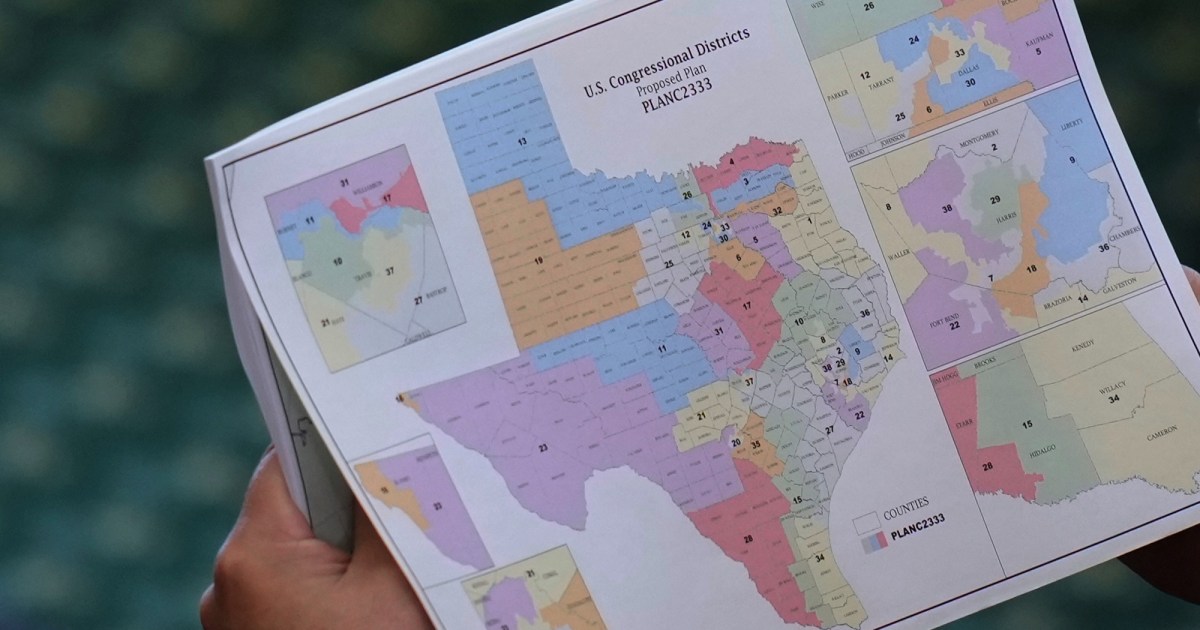In a bombshell decision on Tuesday, a federal court in Texas blocked a new congressional map that was created after President Donald Trump demanded that the state redraw district lines to hand Republicans five new seats.
“Substantial evidence shows that Texas racially gerrymandered the 2025 Map,” wrote Jeffrey Brown, a Trump-appointed district court judge. His opinion—backed by David Guaderrama, an Obama appointee and the district’s senior judge—found that Texas’ map violated the 14th and 15th Amendment by discriminating based on race. Judge Jerry E. Smith, a Reagan appointee, filed a dissenting opinion.
The decision is the latest defeat for Trump in the gerrymandering arms race.
The panel’s two-judge majority pointed specifically to a Justice Department letter from early July that claimed that four congressional districts where Black and Latino voters comprised a combined majority were “unconstitutional racial gerrymanders.” Texas Gov. Greg Abbott cited that letter as the rationale when calling a special legislative session that month to redraw its congressional map. “The Governor explicitly directed the Legislature to redistrict based on race,” Judge Brown wrote.
Texas Republicans claimed the redistricting effort was motivated by partisan politics, a practice which the Supreme Court has said cannot be reviewed in federal court. But Brown concluded that “the letter instead commands Texas to change four districts for one reason and one reason alone: the racial demographics of the voters who live there.” The judge was unsparing in his criticism of the Justice Department, writing that the letter was “challenging to unpack” given its “many factual, legal, and typographical errors.”
The court concluded that the legislature “dramatically dismantled and left unrecognizable all four districts” targeted by the DOJ. The state ultimately eliminated seven “coalition districts” where two or more minority groups had joined forces to elect their preferred candidates, and turned them into districts where a single race predominated instead.
“It wasn’t enough for the map to merely improve Republican performance,” Brown wrote. “It also needed to convert as many coalition districts to single-race-majority districts as possible. That best explains the House bill’s authors’ comments during the legislative process and the map’s stark racial characteristics. The bill’s main proponents purposefully manipulated the districts’ racial numbers to make the map more palatable. That’s racial gerrymandering.”
Gene Wu, the Democratic leader in Texas’ House of Representatives, hailed the decision, praising the court for stopping “one of the most brazen attempts to steal our democracy that Texas has ever seen.”
Texas will appeal the decision directly to the Supreme Court, which is already weighing whether to destroy the remaining protections of the Voting Rights Act, whose provisions encourage the creation of districts where minority voters have an opportunity to gain political power. It’s very possible, perhaps even likely, that the Supreme Court will ultimately side with Texas; its justices have given the president king-like power and ruled in favor of Republicans in nearly every major voting dispute.
But for now, the decision on Tuesday is the latest in a string of defeats for Trump in the gerrymandering arms race he started. On November 4, California voters overwhelmingly approved a new map designed to offset the Texas gerrymander and give Democrats five new congressional seats. On November 10, a state judge in Utah ordered a map that creates a new pro-Democratic district. And on November 14, the head of the Indiana state Senate said he would not push forward a map that could have given Republicans a 9-0 advantage there. Taken together, the developments raise the prospect that Democrats could break even in—or even win—a redistricting war that was initiated by Republicans.














